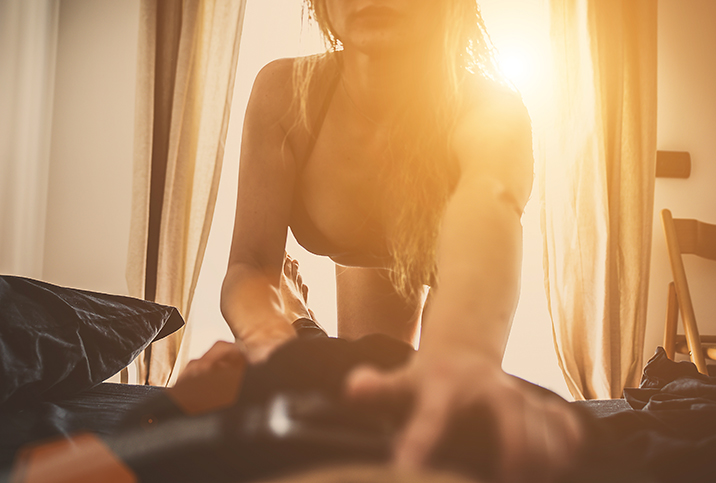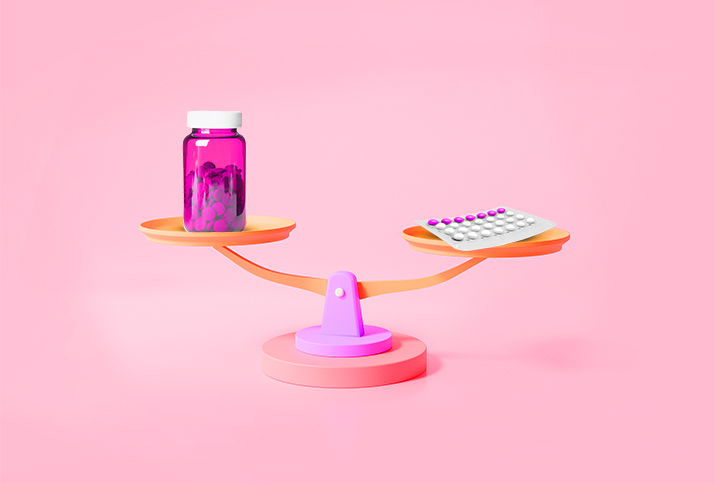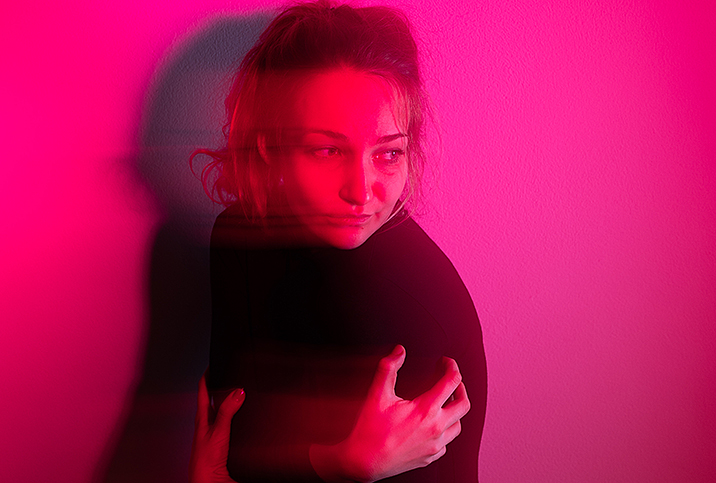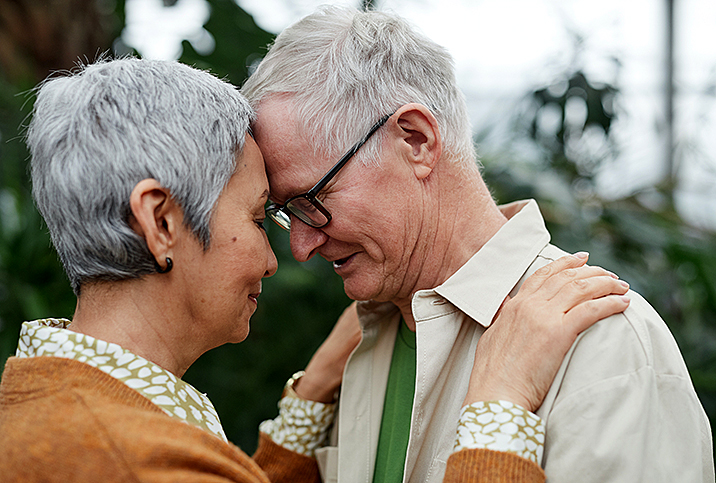What Is My Libido? And Do I Have Enough of It?
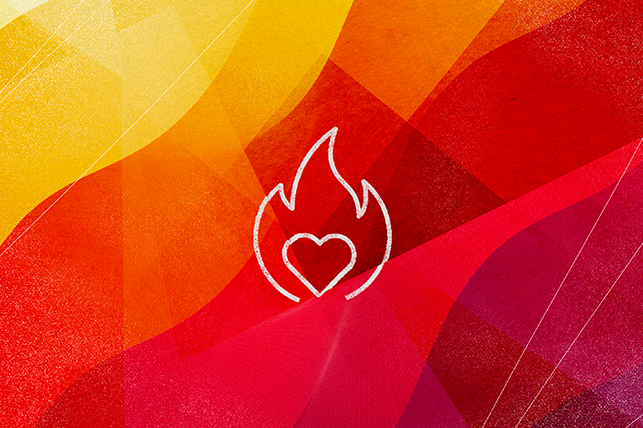
Psychoanalyst Sigmund Freud originally conceptualized the term "libido"—the Greek word for "desire, lust"—as the instinctual energy associated with our sex drive. Today, most non-psychologists use libido as a synonym for "sex drive."
However, the term libido encompasses many aspects, from physical and mental desire and biological functions to the driving force behind our personal and interpersonal relationships.
The following three experts helped us dissect each component of libido and how it affects our lives:
- Lyndsey Harper, M.D., an OB-GYN and the founder of the award-winning women's health technology company Rosy, based in Dallas.
- Evan Goldstein, D.O., a board-certified anal surgeon and the founder of Bespoke Surgical in New York City.
- Jet Setting Jasmine, a licensed psychotherapist and sex educator based in Clearwater, Florida, who uses her expertise in mental health to advocate for a more inclusive and ethically sound adult entertainment industry.
As with most topics, it's best to start with the basics, such as an overview of what libido is, what influences it, how to spot low libido, and myths and misconceptions.
What is libido?
"'Libido' or 'sex drive' is defined as an individual's desire to experience sexual pleasure and/or orgasm," Harper said.
Libido is part of the larger state of sexual health, which the World Health Organization (WHO) defines as a state of physical, emotional, mental and social well-being in relation to sexuality. Libido plays a key role in sexual health, which contributes to the general quality of life.
What influences libido?
While originating as a biological need, libido has evolved in humans to be interwoven with a range of cultural, developmental and psychosocial factors.
"Almost everything influences our sex drive, including our general health, our history with sex, our messaging and education, or lack thereof, about sex, our relationship[s], stressors—including work, kids, aging parents, recent trauma—anxiety, depression, privacy concerns, orgasm frequency and quality, sexual pain and hormones," Harper said.
On the physical side, general health plays a pivotal role. It should come as no surprise that staying healthy and active helps maintain libido as we age, while poor eating and bad exercise habits can have a negative impact on libido.
There is a limit, though, to how exercise benefits libido. While moderate amounts of exercise can raise testosterone, and in turn libido, in men and women, excessive amounts of exercise or intense training for long periods can actually decrease your libido, because the body is constantly trying to recharge.
Another physical component of libido is tied to your medical history. Certain medications can impact libido, as well as medical conditions such as hypogonadism (low testosterone) and chronic or acute illness and injury. Sudden bodily trauma, such as major surgery or a car accident, may impact libido during the recovery period. Mental trauma and stress likewise influence libido. For example, being depressed or overworked may cause your libido to dip.
How do you know if your libido is low?
Libido is highly individual to each person, so at the end of the day, it's about whether you have noticed a change and if you're OK with it.
"Some medical signs and symptoms to watch for low libido are often defined by each person individually," Harper said. "If you feel like your libido is not where you want it to be because you miss sex and the connection it brings, or if lack of sex is causing issues for you, then it is time to start asking questions and seeking support."
Signs of low libido
The symptoms of low libido in biological women and men have a few distinctions but essentially lead to the same result, which is a lack of desire to engage in sexual behaviors with others or with themselves.
Symptoms of low libido in women
Along with influences such as illness and stress, hormonal cycles make women's sexual desires naturally fluctuate. Pregnancy, menstrual cycles and menopause can cause a dip in sex drive, and so can certain types of hormonal medications, such as birth control.
Some symptoms of low libido in women include:
- Feeling concerned by the lack of sexual fantasy or activity
- Having zero interest in any kind of sexual activity, including masturbation
- Rarely or never having sexual thoughts or fantasies
Symptoms of low libido in men
Males may experience a dip in libido tied to a decrease in testosterone or becoming less active as they age.
Some symptoms of low libido in men include:
- Erectile dysfunction (ED) or inability to experience sexual pleasure
- Feeling concerned by the lack of sexual fantasy or activity
- Having zero interest in any kind of sexual activity, including masturbation
- Rarely or never having sexual thoughts or fantasies
Myths and misconceptions
Myth: Libido is only about sex
Reality: Libido encompasses all of sexual desire's complexities, of which physical intercourse is only one component. Loss of intimacy, difficulties in your relationship, emotional stressors and many other personal components may factor into your libido, particularly in long-term relationships.
"Experiencing high levels of stress in your relationship could be a good time to go to a mental health provider," Jet Setting Jasmine suggested.
Myth: Low libido in men is the same as erectile dysfunction
Reality: Our phallocentric culture often equates low libido in men to erectile dysfunction (ED). However, a lack of sexual desire may be totally separate from a man's ability to get an erection. Rather, they may retain the ability to maintain an erection but lose the desire for sexual activity or vice versa.
"People like to pigeonhole libido," Goldstein explained.
He said he often sees patients with low libido due to not being able to anally receive—or "bottom"—as much as they'd like to do. He noted that many patients who are able to have erections may lack sexual confidence and libido due to anal issues. For straight and gay men alike with erectile dysfunction, prostate stimulation may be another way to increase libido.
"A lot of sexual libido issues that people have, whether it's topping or erectile dysfunction, anal is another really great way to reinvigorate that," he added.
Myth: Everyone is not OK with having low libido
Reality: No matter whether low libido is a relatively new occurrence due to aging or medical conditions or simply a natural trait of an individual, it's really only a problem if the person in question feels concerned.
"Don't compare and take drastic measures because you aren't doing enough. What feels like a good quality of life for you?" Jet Setting Jasmine said. "For some folks, the goal is not to return to the previous pace of sexual desire and arousal, but to find and enjoy other forms of intimacy."












